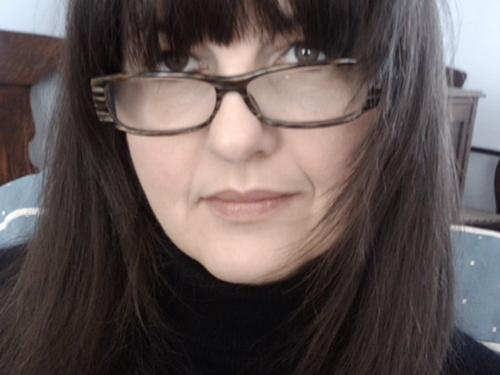
You’ve heard of the slow food movement? Sandra Sabatini, research manager in the College of Arts, thinks we need a slow writing movement. “There are fewer and fewer occasions when someone looks at you and says ‘just slow down,’” says Sabatini. “People tend to write in ways that are easy for them, and it can become a kind of shorthand where there is no texture or geography.”
She’s offering some antidotes to that type of writing during her session of the 2012 Writer’s Workshop at the University of Guelph Library. The workshop runs Feb. 23 and 24 with sessions that cover a range of topics – from fiction to non-fiction and academic writing to the awesomeness of Twitter’s 140 characters. The full program is outlined here and advance registration is required. (The workshop is free to U of G staff, faculty and students; others can pay per session or per day.)
“It takes some courage to sign up for these workshops,” Sabatini adds. “You will have to write, and you will have to read because it is a workshop, not a lecture. When you know you are going to have an audience, you pay a little more attention. And your audience will be people with no vested interest in anything except excellence.”
Sabatini’s writing career shows her commitment to that interest in excellence. A lifelong Guelph resident, she has a PhD in Canadian fiction and rhetoric and a master’s degree in creative writing, and is the author of two collections of short stories. The One with the News (2000), a collection of linked stories exploring the impact of Alzheimer’s disease on a family, was shortlisted for the McClelland Stewart Writers Trust Journey and for the Upper Canada Writers’ Craft Award. The second short-story collection, The Dolphins at Sainte-Marie (2006), explores small town living in Southern Ontario. She also recently published a novel, Dante’s War, about the lives of two young Italians during World War II. As well, Sabatini has a non-fiction book entitled Making Babies: Infants in Canadian Fiction (2004).
Since being involved in an accident last August, Sabatini is feeling the challenge of finding her own voice again – and a little anxiety as she struggles once more with the discipline and practice of being a writer.
During her workshop, Sabatini says she hopes to “challenge people’s impressions of what writing can do.” She will share excellent writing and provide inspiration to writers looking for ways to improve their own work.
Paying attention, she says, means sharpening your awareness, not just of your experiences and observations, but of yourself. “You bring your history, your context, your voice and your own peculiar perspective to the stories you tell with that voice,” Sabatini says.
But she doesn’t promise that the road to good writing will be an easy one. “Writing is a practice and a discipline,” she says. “You’ve got to decide to do it. Read broadly, steal carefully, and find good mentors – preferably ones who don’t like you too much.” Mentors who don’t like you? Sabatini explains that “disinterested mentors” would be ideal, but those are hard to find. A mentor who doesn’t like you too much is more likely to be honest in appraising your work and pushing you to improve.
Writers also have to be willing to take risks in their work, she adds. “If the writing isn’t scaring you a little bit – in a ‘did that come out of me?’” way – then it isn’t going to be as good as it can be.”
The truth is that writing is one of the best places to take risks, because you can always go back later and change it if you decide you’ve gone too far. Bad first drafts are gifts, Sabatini claims, because now you have something to fix. “You’re not hanging off the precipice of the blank page.”